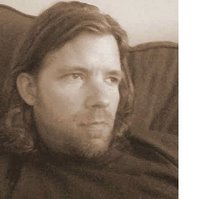A couple of years ago I moved to the small town of Avalon on Catalina Island. I discovered that like any place there are advantages and disadvantages to living there. I must admit, Avalon is very appealing in many ways. It’s a small town of about 5,000 people living in a one square mile area. It’s picture perfect with a beautiful harbor to view every day. People greet each other. There is no commute time except for the 5 to 10 minute walk to work. There is hardly any crime and it seemed to me a haven from the “real world”. This “paradise” did not come without a cost and that was the extremely high cost of living with very few jobs that could sustain those costs. But in my conversations with people, they would reply that this was “the price of paradise”. I disagreed and moved back to the mainland to continue my search for paradise. But my experience raised an interesting question: if the world is to become the utopia we all hope for, what will be the costs and will people be willing to “pay” for our paradise?
What if the price of paradise is a world with no private cars. As a major source of pollution, an intense user of resources and a source of economic division (see “Rethinking the Sources of Poverty”) its very likely the world will need to depend on mass public transportation to achieve a sustainable and equitable world without poverty. Will people be willing to give up this symbol of freedom and individuality? I would definitely give up the costs, the frustration of traffic and pollution and crime cars create for a paradise that has affordable, accessible and safe mass transit.
What if we each have to “pitch in” a little more to achieve our paradise? Speaking for myself, I get bored doing the same types of activities and enjoy being both a thinker and a laborer. I look forward to picking grapes of helping on a farm. Now if that were my only job it might get old, but such chores were a community effort as it is in a Kibbutz, I would rather do that than pay taxes or exorbitant food prices to avoid that chore. I’m not sure where people develop these notions of what jobs are important and which are not, but every job fulfills an important place in modern communities. It seems to me that such distinctions are a result of ego and to achieve paradise we each will have to recognize the essential needs of each role, job and task and “pitch in” to achieve equality and sustainability.
What if we each have to tolerate the ridiculous beliefs of others? It seems that our paradise will be defined by peace. But peace does not happen just by itself, it happens through our choices. Peace could be achieved by a benevolent dictator, but I don’t think any of us want to be told how to live. Peace could also be achieved by creating a homogenous population – one religious belief or one race, but I think diversity is a resource and offers strength. And, once again, I get bored being around people just like me, don’t you? Perhaps in paradise we will just have to choose to be tolerant of each other which means we will also have to exercise restraint in the public sphere. I think the great freedom we seek will require great responsibility from each of us (see “Lost in Freedom”).
What if we each have to eat more fruits and vegetables to make our paradise a reality? It may sound silly to contemplate, but our food habits are causing many of our health and ecological problems. For example, beef production is a major source of methane gas and our overfishing is depleting stocks in the oceans. Our agricultural system is overly complex relying on fossil fuels for transport and toxic chemicals to increase yields. And, in general, we overeat because we are depressed and lonely and the excess weight fuels high healthcare costs. Paradise will have none of these problems, but that is because the solution is to buy more locally available organic produce and in general rely less on resource intense meat and fish. In fact, in paradise we might each have to grow a small vegetable garden so as to take on some of the responsibility ourselves.
What if we each have to better educate ourselves and think before we act? We all want to be needed, to be heard by others and contribute to the solutions – the ideal of a direct democracy. But, the founders of America knew that a democracy required a well educated public to make informed choices. It seems to me that in paradise we will each need to be educated. We will each know when to speak up and contribute and when to be quiet and listen. None of us are equal in our gifts, but we each have something special to offer. In our paradise we will all be empowered to achieve our potential (see “Educationally Challenged”).
A key notion of paradise is that it is something different from how we live now. And, in order to achieve this paradise there needs to be change. The distance from where we are now to achieving that paradise is the time it takes us to make those choices. I'm not saying that what I've outlined is the price of paradise, but if it were would you pay it?
Monday, May 28, 2007
The Price of Paradise
Labels:
automobile,
education,
environment,
ethics,
happiness,
paradise,
philosophy,
poverty,
solution,
sustainability,
utopia
Subscribe to:
Post Comments (Atom)

No comments:
Post a Comment